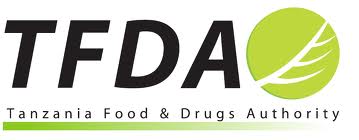Tanzania: TFDA Warns users of Baobab Oil
THE Tanzania Food and Drug Authority (TFDA)
yesterday warned the public against drinking baobab oil, saying it
contains substances that have carcinogenic effects.
The baobab, scientifically known as Adansonia digitata, is tree species, spread in many parts of Africa and people use it for many purposes including relish, preparation of juice and of late "cure-all oil medication."
The government has also strongly cautioned the public against buying and using of drugs without prescription of qualified medical professionals.
The drug and food watchdog cited reckless use of Diclopa and Diclofenac, which are popular pain killers, as examples, noting that there were various unpleasant side-effects associated with the drugs.
TDFA, however, said people may continue using baobab oil as a cosmetic and not medication purposes.
Speaking at the 37th Dar es Salaam International Trade Fair (DITF) TFDA Spokesperson Ms Gaudensia Simwanza said the public should refrain from drinking baobab oil.
Some vendors claim that doses of the oil normally administered using tea-spoon is highly potent in treatment of various conditions including hypertension, diabetes, obesity and abdominal ailments.
Ms Simwanza said after testing the baobab oil it was found containing harmful chemicals which should not be orally taken by human beings, until the chemical is extracted.
She said the technology to extract the harmful chemicals is not available in the country at the moment and until then the public should stop drinking the oil," she explained.
"We are witnessing a big influx of vendors selling baobab oil, parading it as a 'cure-all' concoction. We want the public to know that they are drinking it at their own peril...it contains some fatty acids that have carcinogenic effects," she said.
The Deputy Minister for Health and Social Welfare, Dr Seif Rashid, said the government would step up public education to sensitise the people against use of drugs without prescription by competent medics.
"The use of Diclopa and Declofenac or any other drug must be taken with extra care since no any drug is 100 per cent safe.
"But generally patients must carefully adhere to doctors' advice before going for any medicine," he said.
Dr Rashid said the country was facing a serious challenge of shortage of qualified pharmacists and pharmacy assistants to make sure that medicines were professionally dispensed and administered.
He said efforts were underway to scale up Accredited Drug Dispensing Outlets (ADDO) programme countrywide which is training pharmacy attendants on the best practices of pharmacy services.
It is through the people's understanding basic principles accompanying the sale and issuance of medicines that they will be able to take precautions before buying and using drugs.
The baobab, scientifically known as Adansonia digitata, is tree species, spread in many parts of Africa and people use it for many purposes including relish, preparation of juice and of late "cure-all oil medication."
The government has also strongly cautioned the public against buying and using of drugs without prescription of qualified medical professionals.
The drug and food watchdog cited reckless use of Diclopa and Diclofenac, which are popular pain killers, as examples, noting that there were various unpleasant side-effects associated with the drugs.
TDFA, however, said people may continue using baobab oil as a cosmetic and not medication purposes.
Speaking at the 37th Dar es Salaam International Trade Fair (DITF) TFDA Spokesperson Ms Gaudensia Simwanza said the public should refrain from drinking baobab oil.
Some vendors claim that doses of the oil normally administered using tea-spoon is highly potent in treatment of various conditions including hypertension, diabetes, obesity and abdominal ailments.
Ms Simwanza said after testing the baobab oil it was found containing harmful chemicals which should not be orally taken by human beings, until the chemical is extracted.
She said the technology to extract the harmful chemicals is not available in the country at the moment and until then the public should stop drinking the oil," she explained.
"We are witnessing a big influx of vendors selling baobab oil, parading it as a 'cure-all' concoction. We want the public to know that they are drinking it at their own peril...it contains some fatty acids that have carcinogenic effects," she said.
The Deputy Minister for Health and Social Welfare, Dr Seif Rashid, said the government would step up public education to sensitise the people against use of drugs without prescription by competent medics.
"The use of Diclopa and Declofenac or any other drug must be taken with extra care since no any drug is 100 per cent safe.
"But generally patients must carefully adhere to doctors' advice before going for any medicine," he said.
Dr Rashid said the country was facing a serious challenge of shortage of qualified pharmacists and pharmacy assistants to make sure that medicines were professionally dispensed and administered.
He said efforts were underway to scale up Accredited Drug Dispensing Outlets (ADDO) programme countrywide which is training pharmacy attendants on the best practices of pharmacy services.
It is through the people's understanding basic principles accompanying the sale and issuance of medicines that they will be able to take precautions before buying and using drugs.





No comments:
Post a Comment